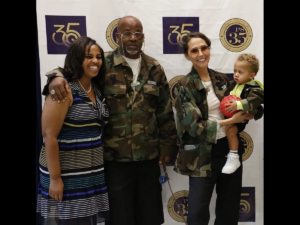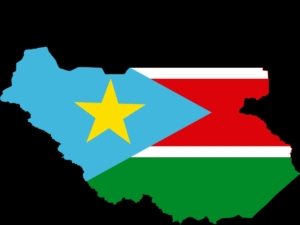After more than two years of fierce conflict in Sudan, the Rapid Support Forces (RSF) signaled a potential shift by accepting a U.S.-brokered proposal for a ceasefire focused on emergency relief. The agreement follows the RSF’s capture of el-Fasher, the last remaining military bastion in Darfur that had endured an 18-month siege.
“The Rapid Support Forces looks forward to implementing the agreement and immediately commencing discussions on arrangements for a cessation of hostilities and the fundamental principles guiding the political process in Sudan, in a manner that addresses the root causes of the conflicts, ending the suffering of the Sudanese people,” the group said in a statement.
But optimism remains fragile. A senior Sudanese military officer, speaking anonymously, said the army would only honor the truce if the RSF withdraws fully from civilian areas and complies with past disarmament terms.
READ ALSO: U.S. ends temporary protected status for South Sudan as political instability persists
The war broke out in 2023 between the RSF and the Sudanese Armed Forces, derailing a hoped-for transition to democracy. The resulting chaos has left at least 40,000 dead, dislocated over 12 million citizens, and plunged more than 24 million into severe hunger, according to humanitarian agencies. Aid workers warn the real figures are likely far worse.
U.S. envoy for African affairs Massad Boulos disclosed that U.S., working alongside Saudi Arabia, Egypt, and the United Arab Emirates, collectively known as the Quad, has been mediating a plan for a three-month humanitarian truce followed by a nine-month political dialogue.
“We were working on this for the last almost 10 days with both sides, hoping to finalize the details,” Boulos told the Associated Press earlier in the week.
Famine is already tightening its grip. The Integrated Food Security Phase Classification reported this week that both el-Fasher in North Darfur and Kadugli in South Kordofan are experiencing famine conditions. Ongoing conflict and blocked humanitarian corridors have made food nearly inaccessible.
“We’re not talking about natural disasters because there is ongoing conflict, insecurity, the inability to access food, and the lack of humanitarian corridors that ensures people in much need obtain food,” said AbdulHakim Elwaer of the UN’s Food and Agriculture Organization. “I’m optimistic that by the end of the year we’ll reach a solution and there has to be a solution because we can’t allow millions of people to die of hunger because aid is not reaching them,” he added.
READ ALSO: UN secretary-general laments worsening situation in Sudan
Humanitarian groups continue to sound alarms. Islamic Relief reported Thursday that most community kitchens in Sudan are on the brink of shutting down, while a new survey shows 83% of families in eastern and western regions have no adequate food.
The latest wave of displacement, spurred by the fall of el-Fasher, has forced thousands to trek for days to camps like Al-Affad in Northern State. Survivors share wrenching accounts of the journey, families collapsing from dehydration, bodies left unburied on the roadside, and relentless drone attacks.
“In el-Fasher there’s nothing but beating and killing using drones in the sky that you can’t see but it hits you. The drone strikes you without you feeling it,” said Rawda Mohamed, who walked for hours to safety. Another escapee, teacher Othman Mohamed, recalled seeing people starve and survive on makeshift foods like Ombaz, the residue from peanut oil pressing.
Aid workers from the Norwegian Refugee Council say many arrivals are so malnourished they can barely speak. “They have often been shelled and sheltered in holes they dug in the ground for safety,” said NRC’s Mathilde Vu. Those who tried to flee “made the journey on foot for several days…with some picked up in trucks only for the final stretch.”
READ ALSO: U.N. Security Council condemns Sudan paramilitary’s rival government plans










